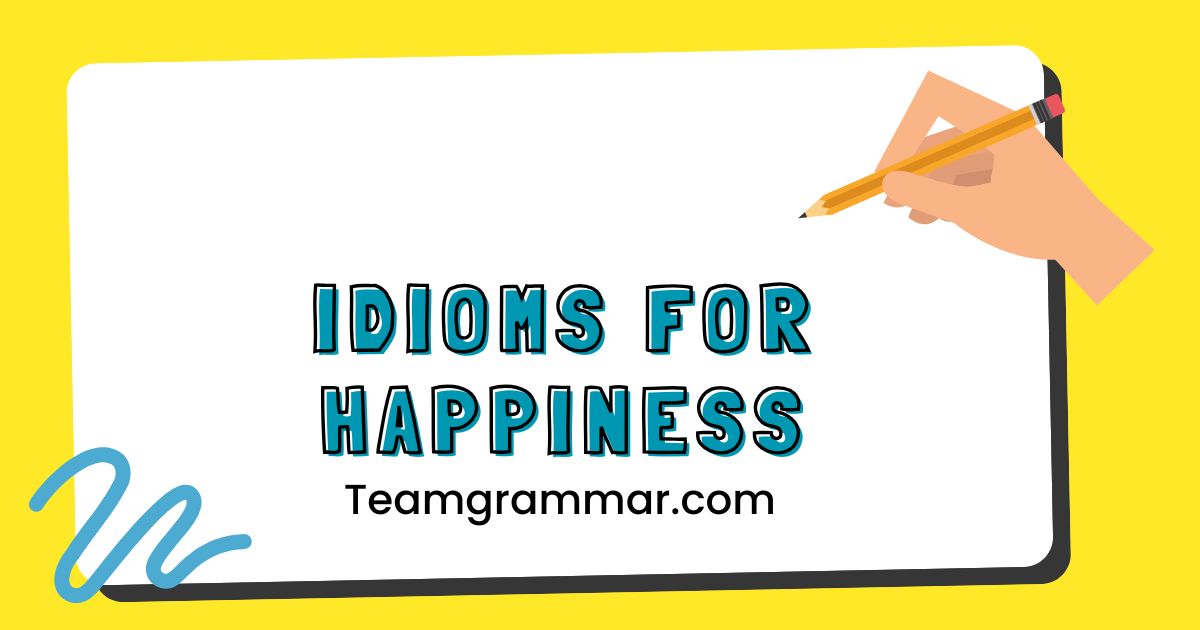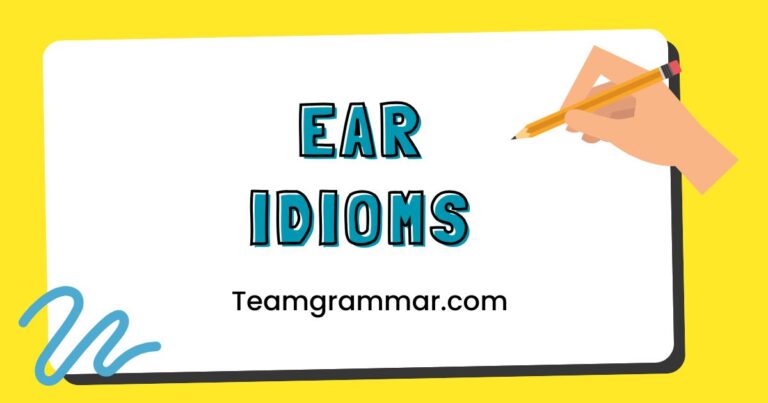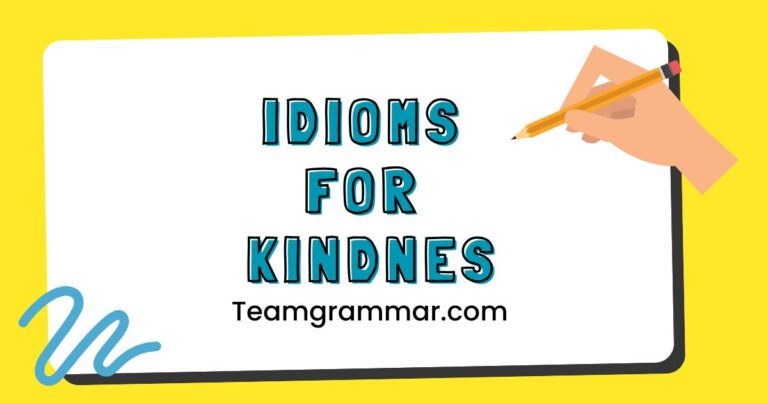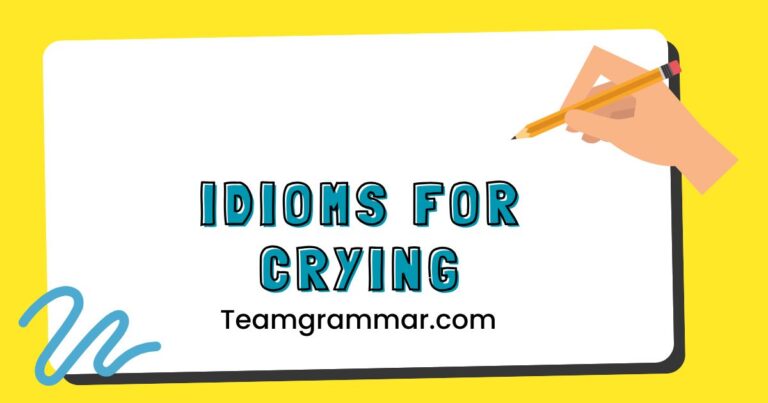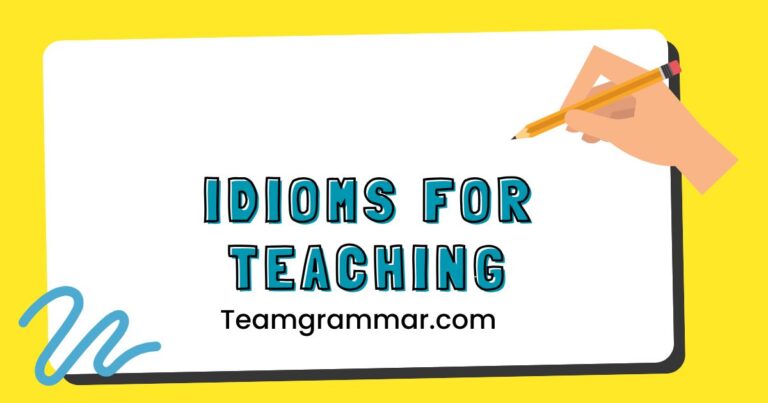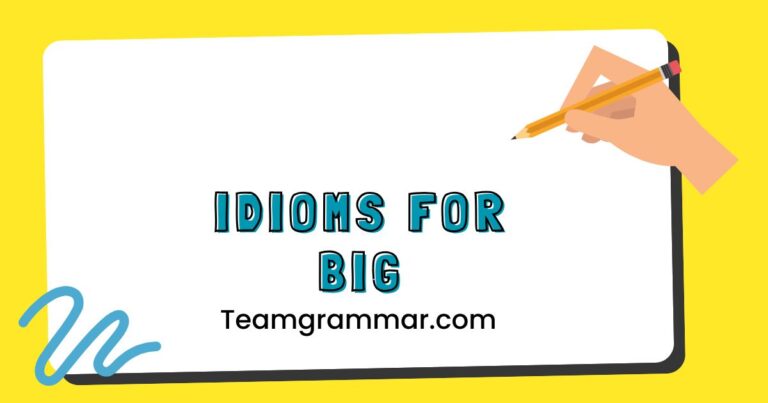48 Idioms for Happiness: Mastering Expressions of Joy
Understanding idioms is crucial for mastering English, as they add color and depth to communication. Idioms related to happiness are particularly valuable because they allow us to express nuanced emotions and connect with others on a deeper level.
This article aims to provide a comprehensive guide to idioms for happiness, covering their definitions, structures, usage rules, and common mistakes. This resource will benefit English language learners of all levels, from beginners seeking to expand their vocabulary to advanced speakers aiming to refine their expressive abilities.
Whether you’re preparing for an English exam, looking to improve your conversational skills, or simply interested in enriching your understanding of the language, this guide will equip you with the knowledge and confidence to use idioms for happiness effectively. By exploring various categories, examples, and practice exercises, you’ll gain a solid foundation in this essential aspect of English grammar and vocabulary.
Table of Contents
- Introduction
- Definition of Idioms for Happiness
- Structural Breakdown of Idioms
- Types and Categories of Happiness Idioms
- Examples of Idioms for Happiness
- Usage Rules for Idioms
- Common Mistakes with Happiness Idioms
- Practice Exercises
- Advanced Topics
- FAQ: Frequently Asked Questions
- Conclusion
Definition of Idioms for Happiness
An idiom is a phrase or expression whose meaning cannot be understood from the literal meanings of its individual words. Instead, idioms have a figurative meaning that is culturally specific.
Idioms for happiness are a subset of these expressions that convey feelings of joy, contentment, excitement, or good fortune. These idioms often paint vivid pictures and add emotional depth to language, making communication more engaging and relatable.
The function of idioms in language is multifaceted. They enrich vocabulary, enhance expressiveness, and provide cultural insights.
When used correctly, idioms can make speakers sound more natural and fluent. In the context of happiness, these idioms allow us to articulate a wide range of positive emotions, from simple pleasure to profound elation.
The contexts in which idioms for happiness are used are diverse. They can appear in everyday conversations, literature, movies, and songs.
Understanding these contexts is crucial for interpreting the meaning of idioms correctly. For example, an idiom that is appropriate in an informal conversation might not be suitable for a formal presentation.
Structural Breakdown of Idioms
Idioms, by their nature, defy straightforward structural analysis. Unlike standard grammatical constructions, idioms don’t adhere to regular syntactic rules.
Their meaning is not derived from the sum of their parts but rather from their established usage within a specific culture. However, we can observe some common structural patterns in idioms.
Many idioms consist of a verb and a preposition, such as “over the moon” or “on cloud nine.” Others involve comparisons, often using “as” or “like,” for example, “happy as a clam.” Some idioms are metaphorical, using imagery to convey a feeling, like “tickled pink.” These patterns can help learners recognize and remember idioms, even if they can’t deduce their meaning from the individual words.
The flexibility of idioms can vary. Some idioms are fixed and cannot be altered without losing their meaning or sounding unnatural.
Others allow for slight variations, such as changing the tense of the verb. Understanding the fixed or flexible nature of an idiom is important for using it correctly in different contexts.
Types and Categories of Happiness Idioms
Idioms for happiness can be categorized based on the specific type of positive emotion they convey. Here are some common categories:
General Happiness
These idioms express a general sense of well-being and contentment. They describe a state of overall happiness without specifying a particular reason or intensity.
Excitement and Enthusiasm
This category includes idioms that convey a strong feeling of excitement, enthusiasm, or eagerness. They often describe a heightened state of joy and anticipation.
Contentment and Satisfaction
These idioms express a sense of peace, satisfaction, and fulfillment. They describe a state of happiness that comes from being content with one’s life or situation.
Luck and Fortune
This category includes idioms that relate happiness to good luck, fortune, or success. They often describe situations where someone experiences unexpected good fortune.
Examples of Idioms for Happiness
Here are some examples of idioms for happiness, organized by category:
General Happiness Examples
The following table provides examples of idioms expressing general happiness, along with their meanings and example sentences. These idioms are commonly used in everyday conversation to describe a state of overall well-being.
| Idiom | Meaning | Example Sentence |
|---|---|---|
| Happy as a clam | Very happy and content | She’s been as happy as a clam since she started her new job. |
| On top of the world | Feeling extremely happy and successful | After winning the championship, the team felt on top of the world. |
| In seventh heaven | Extremely happy | He was in seventh heaven when he found out he was going to be a father. |
| Walking on air | Feeling elated and joyful | She’s been walking on air ever since she got engaged. |
| Over the moon | Extremely pleased and happy | They were over the moon when they heard the good news. |
| Tickled pink | Very pleased and amused | She was tickled pink to receive such a thoughtful gift. |
| Grin like a Cheshire cat | To have a wide, contented smile | He was grinning like a Cheshire cat after acing the exam. |
| Full of the joys of spring | Happy, energetic, and cheerful | She’s always full of the joys of spring, no matter what. |
| As pleased as Punch | Very pleased and satisfied | He was as pleased as Punch with his new car. |
| Having a whale of a time | Enjoying oneself very much | We had a whale of a time at the party last night. |
| Living the dream | Living a life that one has always dreamed of | He’s traveling the world and writing about his experiences; he’s truly living the dream. |
| As happy as Larry | Very happy (Australian slang) | Since retiring, he’s been as happy as Larry, spending his days fishing. |
| Jumping for joy | Expressing great happiness | When she heard she got the job, she was jumping for joy. |
| In good spirits | Cheerful and happy | Despite the challenges, she remained in good spirits. |
| Like a dog with two tails | Very happy and excited | He was like a dog with two tails when he got a new bike. |
| Singing from the rooftops | To proclaim something with great enthusiasm and joy | They were singing from the rooftops about their engagement. |
| Floating on air | Feeling extremely happy and light | After receiving the award, she felt like she was floating on air. |
| In high spirits | Cheerful and lively | The team was in high spirits after their victory. |
| On cloud nine | Extremely happy | She’s been on cloud nine since her baby was born. |
| Happy camper | A contented person | He’s a happy camper now that he’s finally finished his project. |
| Brighten someone’s day | To make someone feel happier | A simple compliment can really brighten someone’s day. |
| Paint the town red | Go out and celebrate | After graduation, we’re going to paint the town red! |
| Be on easy street | To have an easy and comfortable life, often due to financial success | After winning the lottery, he’s finally on easy street. |
Excitement and Enthusiasm Examples
The following table provides examples of idioms expressing excitement and enthusiasm, along with their meanings and example sentences. These idioms are perfect for conveying a strong feeling of eagerness and anticipation.
| Idiom | Meaning | Example Sentence |
|---|---|---|
| Buzzing with excitement | Full of nervous excitement | The children were buzzing with excitement on Christmas Eve. |
| Eager beaver | A person who is extremely enthusiastic and hardworking | She’s such an eager beaver; she’s always the first to volunteer for new projects. |
| Full of beans | Lively and energetic | The kids are full of beans after their nap. |
| Raring to go | Very enthusiastic and eager to start something | The team is raring to go for the championship game. |
| Up for it | Enthusiastic and willing to do something | Are you up for a hike this weekend? |
| Get a kick out of | To find something very enjoyable or amusing | I get a kick out of watching old movies. |
| Have a blast | To have a lot of fun | We had a blast at the concert last night. |
| Be on the edge of one’s seat | To be very excited and eager to see what happens next | The audience was on the edge of their seats during the suspenseful scene. |
| Can’t wait | To be very excited about something that is going to happen | I can’t wait for my vacation next month! |
| All fired up | Very enthusiastic and excited | The team was all fired up and ready to play. |
| Get a buzz from | To feel excited or stimulated by something | He gets a buzz from playing extreme sports. |
| Be psyched | To be very excited and enthusiastic about something | We’re all psyched for the party tonight! |
| On tenterhooks | In a state of suspense or agitation because of uncertainty | She was on tenterhooks waiting for the exam results. |
| Ants in one’s pants | Unable to keep still because of nervousness or excitement | He had ants in his pants before his big presentation. |
| Be revved up | To be excited and ready to go | The crowd was revved up for the concert. |
| Look forward to | To anticipate something with pleasure | I’m really looking forward to seeing you next week. |
| Thrilled to bits | Extremely pleased | She was thrilled to bits with her new puppy. |
| Be walking on sunshine | To be extremely happy and carefree | Ever since she got the promotion, she’s been walking on sunshine. |
| A thrill a minute | Full of excitement or thrills | The roller coaster ride was a thrill a minute. |
| Be in a fever pitch | A state of great excitement or agitation | The stadium was in a fever pitch as the game neared its end. |
Contentment and Satisfaction Examples
The following table provides examples of idioms expressing contentment and satisfaction, along with their meanings and example sentences. These idioms are useful for describing a state of peace and fulfillment.
| Idiom | Meaning | Example Sentence |
|---|---|---|
| At peace with oneself | Feeling content and satisfied with one’s life and decisions | After years of searching, he finally felt at peace with himself. |
| Comfortable in one’s own skin | Confident and accepting of oneself | She’s comfortable in her own skin and doesn’t worry about what others think. |
| Sitting pretty | In a fortunate and comfortable position, often financially | After the successful business deal, they were sitting pretty. |
| Content as can be | Completely satisfied and happy | Living in the countryside, he was content as can be. |
| In clover | Living comfortably and prosperously | Since landing the lucrative contract, the company has been in clover. |
| Take pleasure in | To enjoy something | She takes great pleasure in gardening. |
| Well-pleased | Very satisfied | The manager was well-pleased with the team’s performance. |
| Satisfied with | Content with what one has | He was satisfied with the simple life he led. |
| Have no complaints | To be content with one’s situation | I have no complaints; everything is going well. |
| Live a charmed life | To have a life that seems to be protected by good luck | She’s always been lucky; she seems to live a charmed life. |
| In a good place | In a positive state of mind or life situation | After overcoming his challenges, he’s finally in a good place. |
| At ease | Relaxed and free from worry | She felt completely at ease during her vacation. |
| Enjoy the little things | To appreciate the small pleasures in life | He’s learned to enjoy the little things, like a cup of coffee in the morning. |
| Be content with one’s lot | To be satisfied with one’s current situation in life | He’s content with his lot and doesn’t yearn for more. |
| Live the good life | To enjoy a comfortable and luxurious lifestyle | They’re retired and living the good life, traveling and relaxing. |
| Be at peace | To be calm and free from worry | She found peace in meditation. |
| Rest easy | To be free from anxiety or worry | You can rest easy knowing that everything is taken care of. |
| Take it easy | To relax and not worry | After a long week, it’s important to take it easy on the weekend. |
| Bask in the glory | To enjoy the praise and admiration one receives after a success | After winning the award, they basked in the glory. |
| Land on one’s feet | To recover quickly from a difficult situation | Despite losing his job, he managed to land on his feet. |
Luck and Fortune Examples
The following table provides examples of idioms relating happiness to luck and fortune, along with their meanings and example sentences. These idioms are often used when someone experiences unexpected good fortune or success.
| Idiom | Meaning | Example Sentence |
|---|---|---|
| Born under a lucky star | Having a life that seems to be blessed with good fortune | She was born under a lucky star; everything always seems to go her way. |
| Strike gold | To discover something valuable or profitable | The company struck gold with their new product. |
| In the right place at the right time | Being present when an opportunity arises | He got the job because he was in the right place at the right time. |
| Have a stroke of luck | To experience a sudden and unexpected piece of good fortune | He had a stroke of luck when he won the lottery. |
| Come up roses | To turn out well in the end, despite initial difficulties | Despite the challenges, everything came up roses for them. |
| Fall into one’s lap | To receive something without having to work for it | The opportunity fell into his lap unexpectedly. |
| Have the Midas touch | To have the ability to make money easily | Everything he invests in seems to succeed; he has the Midas touch. |
| Hit the jackpot | To have a big success or win a large amount of money | They hit the jackpot with their new business venture. |
| A lucky break | A fortunate opportunity or chance | Getting that internship was a lucky break for her career. |
| Turn one’s luck around | To change one’s circumstances from bad to good | After years of struggle, he finally turned his luck around. |
| Cash in on | To take advantage of an opportunity to make money | The company cashed in on the latest trend. |
| Be in the money | To be wealthy | After selling his company, he was in the money. |
| Have all the luck | To consistently experience good fortune | She seems to have all the luck; everything goes her way. |
| Get a windfall | To receive an unexpected sum of money | They got a windfall when their relative passed away. |
| Be sitting on a gold mine | To possess something of great value | The inventor was sitting on a gold mine with his new invention. |
| Make a killing | To make a large profit quickly | They made a killing on the stock market. |
| Be on a roll | To be experiencing a series of successes | The team is on a roll, winning game after game. |
| Golden opportunity | A very favorable chance or prospect | This is a golden opportunity to invest in the company. |
| Win big | To achieve great success or win a large prize | She won big at the casino. |
| Have luck on one’s side | To be favored by fortune | He had luck on his side during the competition. |
Usage Rules for Idioms
Using idioms correctly requires attention to detail and an understanding of their specific contexts. Here are some key usage rules to keep in mind:
- Context Matters: Idioms are often informal and may not be appropriate for formal settings.
- Word Order: The word order in idioms is usually fixed. Changing the order can alter the meaning or make the phrase sound unnatural.
- Tense and Agreement: While some idioms are fixed, others can be adapted to fit the tense and subject of the sentence. For example, “He is over the moon” can be changed to “He was over the moon.”
- Cultural Sensitivity: Be aware that some idioms may not translate well across cultures and could be misunderstood or even offensive.
Understanding the nuances of idiom usage can significantly improve your fluency and communication skills. Always consider the audience and purpose of your message when deciding whether to use an idiom.
Common Mistakes with Happiness Idioms
Learners often make mistakes when using idioms, especially when they try to interpret them literally or translate them directly from their native language. Here are some common mistakes to avoid:
| Incorrect | Correct | Explanation |
|---|---|---|
| She is on the seventh sky. | She is in seventh heaven. | The correct idiom is “in seventh heaven,” not “on the seventh sky.” |
| He was walking in the air. | He was walking on air. | The correct idiom is “walking on air,” not “walking in the air.” |
| They were happy like a clam. | They were happy as a clam. | The correct idiom is “happy as a clam,” not “happy like a clam.” |
| I had a whale of time. | I had a whale of a time. | The correct idiom is “a whale of a time”, including the article “a”. |
| He is full of the joy of spring. | He is full of the joys of spring. | The correct idiom is “joys”, plural, not “joy”. |
Being aware of these common mistakes can help you avoid errors and use idioms correctly. Practice using idioms in context to reinforce your understanding and improve your fluency.
Practice Exercises
Test your understanding of idioms for happiness with these practice exercises:
Exercise 1: Multiple Choice
Choose the correct idiom to complete each sentence.
| Question | Options | Answer |
|---|---|---|
| After winning the lottery, he was __________. | a) on cloud eight b) on cloud nine c) on cloud ten | b) on cloud nine |
| She’s been __________ since she got engaged. | a) walking in air b) walking on air c) walking with air | b) walking on air |
| They __________ at the party last night. | a) had a blast b) had a bomb c) had a bang | a) had a blast |
| He’s been __________ since he retired. | a) happy as Larry b) happy as Harry c) happy as Barry | a) happy as Larry |
| The children were __________ on Christmas Eve. | a) buzzing with excitement b) buzzing with energy c) buzzing with joy | a) buzzing with excitement |
| She seems to __________; everything goes her way. | a) have all the luck b) have the luck c) have any luck | a) have all the luck |
| After the successful business deal, they were __________. | a) sitting pretty b) sitting well c) sitting good | a) sitting pretty |
| They __________ with their new business venture. | a) hit the jackpot b) hit the prize c) hit the money | a) hit the jackpot |
| He __________ when he won the lottery. | a) had a stroke of luck b) had a touch of luck c) had a bit of luck | a) had a stroke of luck |
| He was __________ after acing the exam. | a) grinning like a dog b) grinning like a cat c) grinning like a Cheshire cat | c) grinning like a Cheshire cat |
Exercise 2: Fill in the Blanks
Fill in the blanks with the correct idiom.
| Question | Answer |
|---|---|
| She’s been __________ ever since she started her new job. | happy as a clam |
| After winning the championship, the team felt __________. | on top of the world |
| He was __________ to receive such a thoughtful gift. | tickled pink |
| We __________ at the concert last night. | had a whale of a time |
| She’s always __________ , no matter what. | full of the joys of spring |
| He finally felt __________ after years of searching. | at peace with himself |
| She’s __________ and doesn’t worry about what others think. | comfortable in her own skin |
| Everything __________ for them, despite the challenges. | came up roses |
| The opportunity __________ unexpectedly. | fell into his lap |
| He _________ with his new invention. | was sitting on a gold mine |
Exercise 3: Sentence Completion
Complete the sentences using an appropriate idiom for happiness.
| Question | Answer |
|---|---|
| Since landing the lucrative contract, the company has been __________. | in clover |
| The kids are __________ after their nap. | full of beans |
| The team is __________ for the championship game. | raring to go |
| I __________ watching old movies. | get a kick out of |
| He __________ when he found out he was going to be a father. | was in seventh heaven |
| She _________ with her new puppy. | was thrilled to bits |
| The stadium __________ as the game neared its end. | was in a fever pitch |
| He _________ extreme sports. | gets a buzz from playing |
| We’re all _________ for the party tonight! | psyched |
| Ever since she got the promotion, she’s been _________. | walking on sunshine |
Advanced Topics
For advanced learners, exploring the origins and evolution of idioms can provide deeper insights into their meanings and usage. Understanding the historical and cultural context of an idiom can enhance your appreciation for the richness and complexity of the English language.
Another advanced topic is the use of idioms in creative writing. Skilled writers use idioms to add color and authenticity to their work, creating vivid images and engaging readers.
Experimenting with idioms in your own writing can help you develop a more distinctive and expressive voice.
Finally, exploring regional variations in idiom usage can be fascinating. Different regions of the English-speaking world often have their own unique idioms and expressions.
Learning about these variations can broaden your understanding of the language and help you communicate more effectively with people from different backgrounds.
FAQ: Frequently Asked Questions
- What is the difference between an idiom and a proverb?
An idiom is a phrase whose meaning is not predictable from the usual meanings of its constituent elements, while a proverb is a short, well-known saying that expresses a general truth or piece of advice. For example, “on cloud nine” is an idiom expressing happiness, while “look before you leap” is a proverb offering caution.
- Can idioms be used in formal writing?
Generally, idioms are more suitable for informal contexts like conversations or creative writing. In formal writing, such as academic papers or business reports, it’s best to use more direct and literal language to avoid ambiguity and maintain a professional tone. However, well-known idioms can sometimes be used sparingly if they fit the context and add impact.
- How can I learn new idioms effectively?
Immerse yourself in the language by reading books, watching movies, and listening to podcasts. Pay attention to how native speakers use idioms in different contexts. Keep a notebook of new idioms you encounter, along with their meanings and example sentences. Practice using the idioms in your own conversations and writing to reinforce your understanding.
- Are there any online resources for learning idioms?
Yes, there are many online resources available, including dictionaries of idioms, websites with idiom quizzes and exercises, and online forums where you can ask questions and discuss idioms with other learners. Some popular resources include The Free Dictionary, Merriam-Webster’s Learner’s Dictionary, and various language learning apps.
- How do I know when to use an idiom?
Consider your audience, the context of the communication, and the purpose of your message. If you’re speaking to native English speakers in an informal setting, idioms can add color and expressiveness to your language. However, if you’re speaking to non-native speakers or in a formal setting, it’s best to use more direct and literal language to avoid confusion.
- What should I do if I don’t understand an idiom?
First, try to guess the meaning from the context. If that doesn’t work, look up the idiom in a dictionary or online resource. Pay attention to the example sentences provided to understand how the idiom is used in different situations. If you’re still unsure, ask a native speaker for clarification.
- Can I change the words in an idiom?
Generally, no. Idioms are fixed expressions, and changing the words can alter the meaning or make the phrase sound unnatural. However, some idioms allow for slight variations in tense or number, depending on the context. It’s best to use idioms exactly as they are commonly used to avoid making mistakes.
- Are idioms the same in all English-speaking countries?
No, idioms can vary significantly between different English-speaking countries and regions. For example, an idiom that is common in the United States may not be used or understood in the United Kingdom or Australia. Be aware of these regional variations and try to learn idioms that are relevant to the specific context in which you are communicating.
- How can I avoid misusing idioms?
The best way to avoid misusing idioms is to practice using them in context. Start by learning a few common idioms and using them in your conversations and writing. Pay attention to how native speakers use idioms and ask for feedback if you’re unsure about your usage. Over time, you’ll develop a better sense of how to use idioms correctly and effectively.
- Is it necessary to learn idioms to speak English fluently?
While it’s not strictly necessary, learning idioms can significantly enhance your fluency and expressiveness in English. Idioms allow you to communicate more naturally and connect with native speakers on a deeper level. They also provide valuable insights into the culture and way of thinking of English-speaking people.
Conclusion
Mastering idioms for happiness is a valuable step towards achieving fluency and expressiveness in English. By understanding their definitions, structures, usage rules, and common mistakes, you can use these colorful expressions with confidence and accuracy.
Remember to pay attention to context, practice regularly, and be aware of regional variations. Embrace the richness and complexity of the English language, and enjoy the journey of learning new idioms.
Continue to expand your vocabulary and refine your understanding of idioms. This will not only improve your communication skills but also deepen your appreciation for the cultural nuances of the English language.
Keep practicing, stay curious, and don’t be afraid to make mistakes – they are a natural part of the learning process. With dedication and persistence, you’ll be able to use idioms for happiness effectively and enhance your ability to express a wide range of positive emotions.

